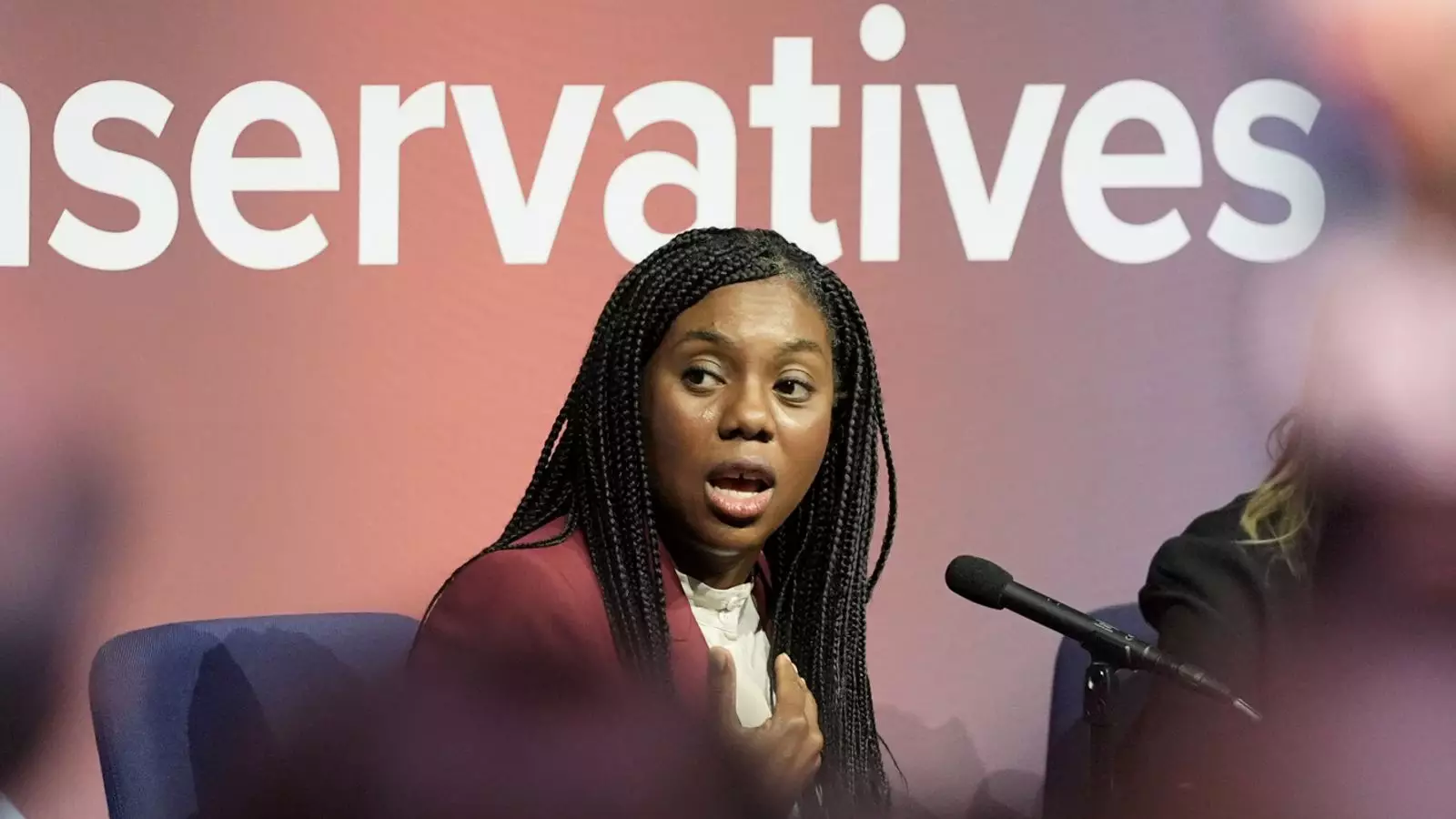Kemi Badenoch’s recent assertions regarding the civil service have sparked significant debate and backlash, positioning her comments as a focal point in the ongoing culture war narrative in British politics. By claiming that 5-10% of civil servants are “very bad” and deserve imprisonment, she has polarized opinions and raised questions about her motivations and the implications of her remarks for civil service integrity and public trust. This moment illustrates the perilous intersection of politics and rhetoric, particularly in an era where inflammatory comments can easily incite division.
Engaging with the audience at a fringe event organized by the Spectator magazine, Badenoch’s remarks emerged in response to queries regarding civil service efficiency. She categorized civil servants into broad, sweeping generalizations, offering praise for approximately 90% while relegating a fraction to criminality without citing specific examples or evidence.
The immediate pushback from Dave Penman, general secretary of the FDA union, highlights the gravity of Badenoch’s claims. He demanded evidence to substantiate her allegations, emphasizing that if legitimate documentation existed, more serious action would have been taken against the individuals involved. Penman’s insistence on accountability underscores the code of conduct expected within the civil service and the considerable ramifications of public accusations without backing evidence.
In addition, a source close to Badenoch quickly attempted to downplay her comments, asserting they were made in jest. This reaction prompts further analysis—whether as an act of damage control or acknowledgment of the inappropriateness of the statements. It raises the question of whether she believes her words resonate with the electorate or if they reflect a miscalculated attempt at humor in a serious political discourse.
Badenoch’s remarks encapsulate a broader trend in political communication, where provocative statements are often employed as tools for engagement. While many politicians consciously strive to connect with their base by presenting themselves as “straight talkers,” this approach can lead to misunderstandings and misrepresentations. Her suggestion that a significant portion of the civil service comprises individuals engaging in unethical behavior does not simply reflect her personal views—it also plays into the larger narrative of distrust in institutions, which is gaining traction.
Additionally, her criticisms of existing maternity pay alongside derogatory comments on the civil service highlight a strategy that seems aimed at positioning herself as a candidate unafraid to challenge the status quo. However, this tactic of scorning established norms and articulating what she perceives as “excessive” policies can be damaging, not just politically but ethically, as it may undermine the support systems designed to protect vulnerable populations.
Despite the backlash, Kemi Badenoch continues to enjoy popularity among Tory members, signaling a complex dynamic within Conservative politics. Following the party’s struggles in the wake of the July general election defeat, her ascendancy is marked by a distinct approach—one that blends forthrightness with an inclination toward controversial statements. As she vies with contenders like Robert Jenrick and James Cleverly, the contest is not simply a race for leadership; it’s a battle over the future direction of Conservative values and rhetoric.
While Badenoch may present herself as a refreshing alternative to political mediocrity, her journey indicates that boldness in rhetoric must be coupled with accountability and thoughtful discourse. An exclusive poll from Sky News suggesting that the race is competitive shows that while Badenoch may lead, the path to victory is fraught with challenges, particularly as fellow candidates capitalize on the fallout from her comments.
As the political landscape continues to evolve, it is imperative for leaders like Kemi Badenoch to recognize the weight of their words. Accusations directed at substantial portions of the civil service require more than anecdotal evidence or flippancy; they demand a level of responsibility that preserves the integrity of public service. The conversations surrounding her provocative statements will likely influence public perception and party dynamics in the coming months, reinforcing the necessity for a measured approach in political dialogue even amid a charged atmosphere where culture wars dominate the narrative. Only through responsible discourse can the essential trust between politicians and the electorate be restored.

Leave a Reply